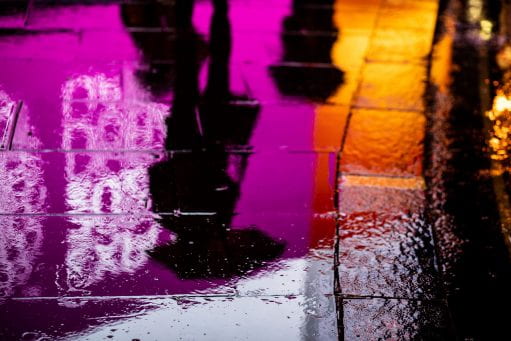The impact of COVID-19 on night-time economies, arts and culture
By Alessio Koliulis, on 30 June 2020
Part of our Post COVID-19 Urban Futures series.
As the pandemic continues to disrupt urban life, city governments have to think about how to support their night-time economies (NTEs).
Cities are forced to lock down venues but regulations over physical distancing result in closures of night-time venues and job losses. In order to protect local economies, there are urgent changes that need to take place, as NTEs remain without financial support and their re-opening is highly uncertain.
Firstly, NTEs need to be understood in their contribution to urban development. Night-time activities are a cultural trait of urban societies, and, as such, possess a strong economic dimension for cities. They also represent a key part of the creative industries supply chain.
As economic and cultural producers, night-time venues maintain a twofold relationship with urban space. Clubs, festivals and music venues are powerful spaces of aggregation in popular neighbourhoods. They attract people and provide space for imagination. And yet, they are particularly vulnerable to changes, highlighting the precarious nature of the creative sector.
In this regard, for NTEs the pandemic presents similar challenges to the 2008 financial crisis. Seeking new assets, financial companies invested in the real estate market and sought opportunities to capitalize on the associated value generated by creative and night-time scenes. This trend intensified pressures over land use, led to a wave of closures of independent venues and prompted campaigns to “save nightlives” in cities across the globe.
Between 2005 and 2015, 44% of nightclubs in the UK closed. UCL researchers Professor Ben Campkin and Lo Marshall found that LGBTQ+ spaces have been particularly vulnerable to closures, with a decrease of 58% in London (down to 53 from 125). Looking at the total number of closures, a greater proportion of LGBTQ+ spaces open to BAME ceased to exist, exposing their greater vulnerability to dynamics of urban development and speculation.
The fragility of NTEs brought by land use pressures and lack of institutional support suggests that a second change needs to take place. National and city governments need support the creative economy more holistically.
The Night Time Industry Association (NTIA), a membership organisation representing thousands of small and medium enterprises forming the UK’s NTE, urged the government to provide specific support in the form of grants and job retention schemes.
With night-time accounting for 8% of the UK’s employment and revenues of £66b per annum, NTIA fears that failures to protect the sector will result in venues and supply chain facing permanent closure. Oxford Economics estimates that across the UK, the creative industries will lose 406,000 jobs, equal to 19% drop in employment.
As Richard Florida writes on Bloomberg CityLab, “the creative economy of art galleries, museums, theatres, and music venues, along with the artists, musicians, and actors who fuel them, is at dire risk. Cities must partner with other levels of government, the private sector and philanthropies to marshal the funding and expertise that is needed to keep their cultural scenes alive.”
Fortunately, many local governments recognize the importance of the NTE for the creative sector. Night-time mayors and commissions from Amsterdam to Berlin and from London to Los Angeles are keen to support its creative production industries and protect jobs. More specifically, they acknowledged that night-time activities, clubs and music venues need to be considered in their socio-economic environment, looking at how they intersect within and beyond the supply chains of the creative sector.
Take for instance the actions of the German federal government. The German ministry of culture supported the creative sector with a €50 billion aid package covering rentals and overheads for artists, self-employed and cultural businesses. An additional €10 billion was released in the form of social security support for individuals employed in the sector. The state initiative recognises that arts and culture are “vital and indispensable”, especially in the context of COVID-19.
Paul Pacifico, CEO of the Association of Independent Music UK, argues that “enforced isolation has also thrown into sharp relief the value of arts and culture to our mental health, wellbeing and ability to connect with other human beings whether or not we occupy the same physical space in that moment.” In this respect, arts and culture should be regarded as public goods on which people rely in times of need, Sound Diplomacy’s report Music Cities Resilience Handbook highlights.
In April 2020, another initiative was launched by VibeLab. The “Global Night-time Recovery Plan” aims to design a strategy for the recovery efforts of cities, reopening night-time venues in a safe and feasible manner. This global initiative is a collaborative call that will publish a practical guide on how to mitigate the challenges cities are facing.
These studies seek to determine the needs of the creative businesses and the value of NTEs for cities and their recovery. Research on the socio-cultural value of night-time highlights the importance of venues for community life and wellbeing. Failing to provide support will exacerbate inequalities further.
As I argued at the first NITE conference in May 2020, closures of night-time venues increase inequalities and undermine urban democracy. Issues of inequalities related to night-time are driven by ideas of economic democracy. Looking at night-time in this way, as a problem of equality and inequality, can provide a better framework to offset the negative impacts of COVID-19 pandemic.
Finally, further research is needed to understand the impact of COVID-19 on night-time economies and inequalities in cities of the Global South.
Night-time activities – a theme that runs underground throughout the work of urban theorist AbdouMaliq Simone – are an integral part of the “popular economies” fabricating the social infrastructures of African, Asian and Latin American cities. Overlooking night-time, including in the context of COVID-19, may prevent scholars and practitioners to fully understand contemporary challenges of urban change and development.
 Close
Close





